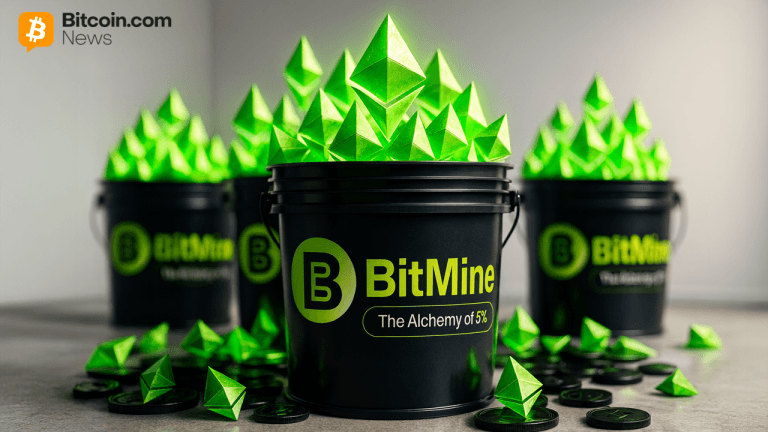Nasdaq-traded Chinese herb company hits near $30 billion market value after speculative surge
4 min read
Hong Kong Skyline
Nikada | E+ | Getty Images
Regencell Bioscience Holdings, an early-stage, Hong Kong-based bioscience company with no revenue, is the latest speculative overseas stock to attract an unusual surge in trading demand.
Shares of Regencell, which says it develops traditional Chinese herb treatments to treat childhood attention deficit hyperactivity disorder and autism, more than tripled on Monday — soaring more than 280% by the close. A 38-for-1 split declared on June 2 took effect on Monday.
The company’s year to date performance is off the charts too, having risen 46,000% in 2025. By Monday’s close, Regencell, founded in 2014 and traded on Nasdaq under the ticker ‘RGC’ since 2021, had a total market capitalization of $29.7 billion, according to S&P Capital IQ.
Regencell CEO Yat-Gai Au controls 86.24% of the total number of shares outstanding, according to FactSet data.
Regencell Bioscience Holdings in 2025.
Regencell is the latest example of a speculative international stock attracting attention during summer trading. In August, 2022, for example, AMTD Digital, a Hong Kong-based fintech company, climbed 126%, briefly giving it a market value greater than Coca-Cola and Bank of America.
Regencell’s market value is now about equal with Nasdaq-traded Lululemon and tops Super Micro Computer and Fifth Third Bancorp.
Earlier this month, Regencell explained the stock split as designed solely “to enhance liquidity in the market for the company’s ordinary shares and make the shares more accessible to investors.” Stock splits do not change anything fundamentally about a company.
Regencell’s surge also came amid an increased focus on alternative medicines after Robert F. Kennedy Jr. was sworn in as Secretary of the U.S. Department of Health and Human Services in February. Kennedy, a vaccine skeptic, has taken steps to discourage routine immunizations in the U.S., last week removing all of the members of a panel that advises the Centers for Disease Control and Prevention on vaccines.
Regencell’s stock often makes huge one-day swings. For example, shares jumped roughly 30% on March 21, before dropping 30% the following trading day.
Obscure treatments, zero revenue
In spite of the wild spike in the stock, little is known about the efficacy and commercialization of the Regencell’s treatments for ADHD and Autistic Spectrum Disorders.
Regencell’s business centers on a proprietary Traditional Chinese Medicine formula (TCM) developed in a partnership with TCM practitioner Sik-Kee Au using his “Sik-Kee Au TCM Brain Theory.” Sik-Kee Au is the father of the Regencell chief executive officer Yat-Gai Au, the company said in a 2022 statement.
Three liquid-based, orally TCM formulae candidates claim to address mild, moderate and severe conditions and only contain natural ingredients such as so-called “detoxication herbs,” blood circulation herbs and digestion herbs.
“These TCM formulae form the basis of our TCM product candidates, which we intend to develop and commercialize for the treatment of ADHD and ASD,” Regencell’s website reads.
In its latest annual report filed last October, Regencell said that it had not generated any revenue, nor filed for any regulatory approvals of its TCM formulas. For the fiscal years ended June 2024 and 2023, Regencell incurred total net losses of $4.36 million and $6.06 million, respectively, according to a 20F filing to the SEC.
“We have not generated revenue from any TCM formulae candidates or applied for any regulatory approvals, nor have distribution capabilities or experience or any granted patents or pending patent applications and may never be profitable,” read the filing.
Regencell has not responded to a CNBC request for comment.
Regencell’s latest patient case study, dated Nov. 15, 2023, said 28 patients were given the treatment over a period of three months in a second efficacy trial and showed an improvement in symptoms of ADHD and ASD, according to the company’s webpage.
In an earlier case, Regencell said in a 2021 news release that it treated a dozen patients with suspected or confirmed Covid-19 cases, using a modified version of Au’s modified proprietary cold and flu TCM formula. What was described as an improvement of Covid conditions led Regencell to form a joint venture with Honor Epic Enterprises Limited in Sept. 2021 to conduct further tests and commercialize the company’s Covid treatment in ASEAN countries, according to the statement.
Online buzz
The stock has attracted little chatter on social media over the past few years. Those comments that have been made suggest both retail trader enthusiasm — and skepticism.
One user on the Reddit page “r/Shortsqueeze” wrote on Monday that Regencell is “trading like a meme coin. Bought a little to see what happens and it dropped 50% right after lol.” Another user said in a post made three months ago, “I scalp RGC everyday for a bit of profit.” The stock jumped 1,360% in May alone.
On LinkedIn in May, one investor said he “can’t stop laughing,” after reading the company description. Another post from a user in the pharmaceutical industry, according to his profile, last week said Regencell has become the “stock to watch” after its spike in May on “no official news or catalysts.” Another LinkedIn user last month commented on Regencell, saying, “China based, low volume and no official news, bizarro.”
On X, one user wrote in a Monday post said, “for #CompleteBullsh__CompanyOfTheYear I nominate regencell.”
— CNBC’s Scott Schnipper contributed reporting.








